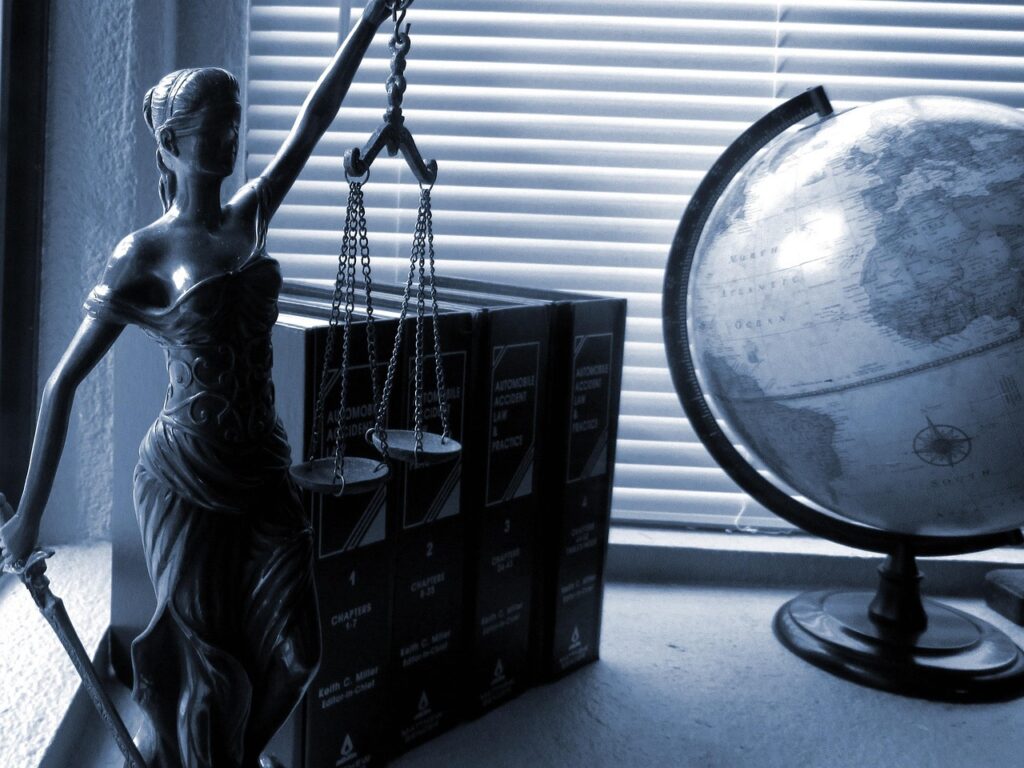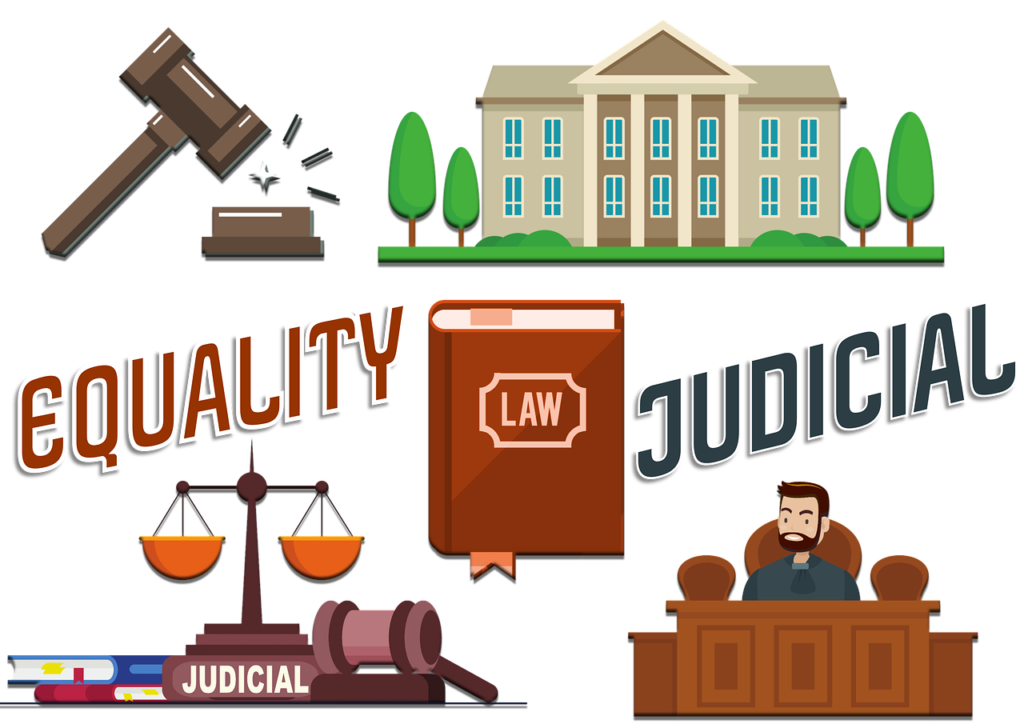Published on: 19th October 2025
Authored by: Tanya
New Law College, BVDU, Pune
CITATION: [2024] 8 S.C.R. 1061; 2024 INSC 595
COURT: SUPREME COURT OF INDIA
BENCH: JUSTICE B.R. GAVAI AND JUSTICE K.V. VISWANATHAN
JUDGMENT DATE: 9 AUGUST 2024
RELEVANT STATUTES/ PROVISIONS:
- Section 3 and 45 of the Money Laundering Act,2022
- Section 7, 7A, 8 and 12 of Prevention of Corruption Act, 1988
- Section 120B, 420 and 201 Of the Indian Penal Code
BRIEF FACTS
Manish Sisodia v. Directorate of Enforcement (2024) involved allegations of irregularities, in terms of process and financing, in the Delhi Excise Policy 2021–22, which allegedly provided special privileges to private liquor retailers. As the CBI and the Enforcement Directorate began to investigate the complaint made by the Lieutenant Governor of Delhi, on February 26, 2023, Manish Sisodia, at the time, Deputy Chief Minister of Delhi, was arrested by the CBI for violations of the Prevention of Corruption Act, as well as various provisions of the IPC relevant and applicable at the time. Subsequently, on March 9, 2023, the ED arrested him for money laundering under the PMLA, identified as a predicate offence from the CBI case. A really long list of 493 witnesses and over 69,000 pages of documents were submitted by the ED as part of investigation. The serious nature of the allegations and his purported ability to influence witnesses has resulted in the trial court and the court at the Delhi High Court denying each of his bail applications. On August 9, 2024, however, the Supreme Court granted bail in reliance upon the significant delay, initiated by the prosecution, in starting the trial despite the accused having been in pre-trial custody for 17 months. In arriving at this determination, the Supreme Court relied upon the Article 21 constitutional right to a speedy trial and affirmed the bail is the norm while detention is the exception. The Supreme Court decision also positively contributed to an evolving area of case law relating to economic offenses by stressing the importance of balancing the need for an investigation against the personal liberty and fundamental rights of each accused.
ISSUES RAISED
- Whether the second set of SLPs filed by the appellant (challenging the same High Court order dated 21st May 2024) was maintainable after disposal of earlier SLPs on 4th June 2024.
- Whether the prolonged incarceration of the appellant and the non-commencement of trial entitled him to bail under Article 21 (right to speedy trial), overriding the usual restrictions under PMLA.
- Whether the rigors of Section 45 PMLA (twin conditions) can be relaxed due to prolonged incarceration and delay in trial.
- Whether the appellant himself was responsible for delaying the trial, which would disentitle him to bail.
- Whether the appellant posed a real threat of tampering with evidence or influencing witnesses if released on bail.
ARGUMENTS
PETITIONER COUNSEL
- Violation of Right to Speedy Trial under Article 21
Counsel submitted that despite being in custody for 17 months, the trial has not yet commenced, which is a grave violation of the appellant’s fundamental right to a speedy trial under Article 21. The Supreme Court, in its 30 October 2023 order, had permitted a fresh bail application if the trial was delayed or dragged on. However, the court emphasized that no real progress was made, and instead, additional charge-sheets continued to be filed, showing that the investigation has not concluded .
- Overwhelming Volume of Evidence
It was highlighted that the case against the appellant involves 493 witnesses and approximately 69,000 pages of documents (ED side: 224 witnesses with 32,000 pages; CBI side: 269 witnesses with 37,000 pages). Given this staggering quantum, counsel argued that the trial cannot conclude soon, making continued custody akin to punishment before conviction .
- Delay Attributable to Investigating Agencies, Not the Accused
The argument stressed that investigations remain incomplete, as evidenced by successive supplementary charge-sheets filed even as late as June 2024. The prosecution deliberately suppressed documents favourable to the defence, labeling them “un-relied upon,” forcing Sisodia to file numerous Section 207 CrPC applications. The ED itself recorded that copying the materials would take 70–80 days, underscoring that the delay was institutional, not strategic by the accused.
- No Risk of Tampering; Bail Conditions Can Mitigate Concerns
Counsel argued that the evidence is mostly documentary and already seized, meaning there is no risk of tampering or influencing witnesses. The appellant is neither a flight risk nor a danger to the investigation, and the court can impose strict bail conditions (e.g., passport surrender, periodic check-ins) to mitigate any residual concerns.
- Inapplicability of Automatic Bail Denial under Section 45 PMLA
It was submitted that the Supreme Court had earlier ruled that Section 45 of the PMLA, which makes bail more stringent, must be read in harmony with constitutional safeguards like Article 21. Thus, even in economic offences, pre-trial detention should not be automatic, especially where trial delays are not the fault of the accused.
- Humanitarian Grounds – Wife’s Health
Finally, the appellant’s counsel emphasized the critical health condition of his wife, which had previously been accepted by the court when granting interim bail. This humanitarian aspect strengthened the plea for bail, urging that continued detention would cause undue hardship to the family.
RESPONDENT COUNSEL
- Maintainability Appeal
The learned ASG has submitted a preliminary objection, arguing that the appellant cannot be allowed to file a second batch of SLPs to contest the High Court’s ruling dated May 21, 2024, after the earlier SLPs deriving from the same order were resolved. Because of this, he argued that the current appeals should be dismissed, forcing the appellant to go back to the trial court.
- Delay Caused
They claimed that Sisodia’s own strategies—submitting more than 100 applications for document access during the pre-charge phase—were partially to blame for the drawn-out trial. It was claimed that this was done on purpose to delay the trial.
- Prima facie Case
In accordance with PMLA §45, bail must demonstrate that (a) there is no prima facie case and (b) the accused is not likely to falsify evidence or sway witnesses. The ED asserted that both had been satisfied:
They discovered ₹45 crore in money trails, backed by digital proof and a substantial body of evidence of purported payments connected to the policy changes.
- Tampering of evidence
The appellant, who held the position of Deputy Chief Minister of Delhi at the time of the offense, is a highly influential individual, the learned ASG argued. He said that if the appellant is freed on bail, there is a good chance he may sway the witnesses or falsify the evidence.
- Complexity of the case
With 493 witnesses, more than 100,000 pages of documentation, and several accused parties involved, the respondent highlighted the extensive scope. A bail order, they contended, would compromise the integrity of the trial and a comprehensive inquiry. 14 applications in the ED case and 13 in the CBI case were submitted by the appellant, and the learned trial judge granted each of them.
JUDGEMENT
After more than 17 months of detention for irregularities under the Delhi Excise Policy 2021-2022, Manish Sisodia was granted conditional bail on August 9, 2024, in a verdict issued a landmark judgment by the Supreme Court of India. Even though eight chargesheets were pending and the trial proceedings had not begun, the bench, which included justices B.R. Gavai and K.V. Viswanathan, said that Sisodia’s extended detention prior to trial was antithetical to his right to a speedy trial under Article 21 of the Constitution. Although economic offenses are serious, such as under the Prevention of Money Laundering Act (PMLA), the bench said the mere fact that they allege serious wrongdoing does not justify a lengthy period of detention. It stated that the dual requirements under Section 45 of the PMLA must be interpreted in light of constitutional safeguards and condemned the autonomic refusal of bail by subordinate courts. The Court noted it was unlikely that the trial could be completed anytime soon due to the staggering weight of evidence, being more than 69,000 pages and 493 witnesses, and that holding Sisodia in continuing detention was better described as punitive detention than procedural necessity. It stated once again that the norm
is bail and the exception is jail; Gurbaksh Singh Sibbia v. State of Punjab and Hussainara Khatoon v. State of Bihar were cited. On providing surety of ₹10 lakh through two sureties, Sisodia was granted bail on the conditions that he surrender his passport, appear before the investigating officer twice a week and not tamper with the evidence or influence the witnesses. The judgment reversed a previous order from the Delhi High Court declining to provide bail and noted that it is the duty of the courts to ensure procedural delays do not infringe the liberty of individuals especially in complex economic offenses.
RATIO DECIDENDI
The Supreme Court’s reasons for reaching its decision in this case hinged on the requirement of Article 21 of the Constitution to safeguard individual liberty especially the right to a speedy trial even in cases of significant economic crimes contemplated under the provision of the Prevention of Money Laundering Act, 2002 ‘The PMLA’. The Court held that excessive pre-trial imprisonment – which in this case was over 17 months – in which the trial had not commenced and numerous charge sheets were filed amounted to punitive detention rather than procedural necessity. The Court was adamant that the twin requirements imposed by Section 45 of the PMLA that ordinarily inhibit the granting of bail must be applied in line with the constitutional guarantees of individual liberty or constitutional guarantees cannot be deprived by either statutory provisions or rules negativing each accused’s fundamental right.
Citing 493 witnesses and more than 69,000 pages of evidence, the Court was clear in stating that it was exceedingly improbable that a conclusion would reach on schedule. The Court indicated, in general terms, that the exercise of judicial discretion must be nuanced and considered the evolving context of the case and criticized the lower courts’ decision to deny bail without exception. The bench cited Gurbaksh Singh Sibbia v. State of Punjab and Hussainara Khatoon v. State of Bihar and reproduced the idea that bail is the rule of law, whereas imprisonment is the exception. The unending period of detention cannot be justified on the basis of systemic delays attributable to investigating agencies or procedural congestion or overload, the bench held, especially when the accused did not contribute to the delay.
Henceforth, the ratio decidendi establishes that constitutional rights are paramount over statutory obligations, and judicial assessment of bail requests must be fluid, taking account of the passage of time, the progress of an application for trial and the relation and balance between public interest and liberty.
FINAL DECISION
On August 9, 2024, the Supreme Court of India made its final determination in the Manish Sisodia v. Directorate of Enforcement (2024) proceeding, granting Manish Sisodia bail in the CBI and ED cases concerning alleged irregularities in the Delhi Excise Policy 2021–2022.
The Court found that Sisodia had been imprisoned for 17 months without his trial beginning, which infringed on his fundamental right to fair trial without undue delay under Article 21 of the Constitution. The Court stated that the presumption for bail is the rule, as is the propensity for imprisonment; “this is efficacious even in the case of serious omissions under the Prevention of Money Laundering Act.” The Court delighted in the lower courts’ joy in mechanically denying bail, and repeated the mantra that constitutional safeguards trump statutory rigors.
Sisodia was granted bail on his furnishing a bond of ₹10 lakh with two sureties, on certain conditions that included:
- His passport was to be surrendered to the Special Court
- He was report to the Investigating Officer twice a week (Mondays and Thursdays)
- He was not to tamper with evidence or influence witnesses.


